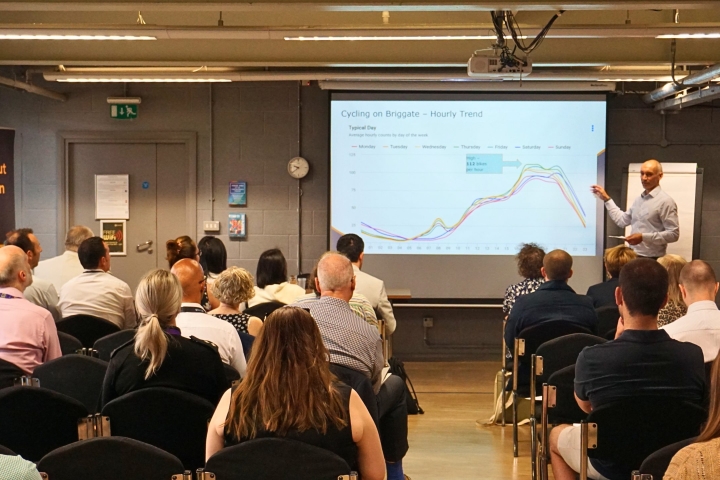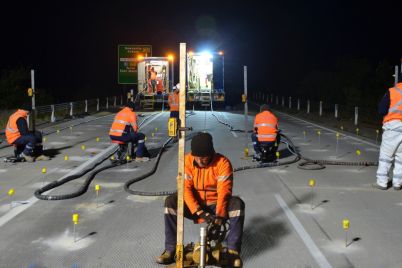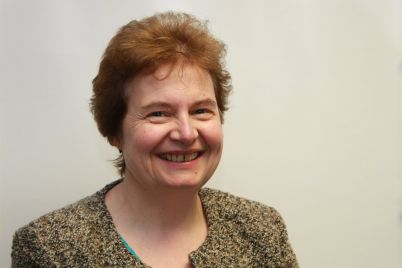Leeds has marked a significant step in its ambition to eliminate deaths and serious injuries on the city’s roads by 2040, as the Leeds Vision Zero conference brought together experts and partners to share progress and plan for the future.
The event, held at The Carriageworks Theatre, marked three years since the launch of the city’s Vision Zero strategy in 2022. It was an opportunity to reflect on the achievements made so far in road safety and to outline the direction of the next three-year action plan.
Figures presented at the Leeds Vision Zero conference showed that the number of people killed or seriously injured on the city’s roads has fallen from an average of 47 each month in 2022 to 38 in 2025. While these figures are encouraging and buck both regional and national trends, the council emphasised that they remain too high, and more work is needed to achieve the ultimate goal of zero fatalities or serious injuries.
Partners at the conference included West Yorkshire Police, the University of Leeds, Road Trace, IMPACT and the Older Drivers Forum. They contributed expertise and shared best practice across a range of initiatives, underscoring the collective approach at the heart of Vision Zero. Sessions were built around the strategy’s five pillars: safe speeds, safe behaviours and people, safe roads, safe vehicles, and post-collision learning and care.
Since 2022, substantial progress has been made in delivering road safety projects across Leeds and West Yorkshire. The council reported that 91,000 road safety sessions have been delivered to young people in Leeds, underlining the importance of education in preventing future accidents. Alongside this, practical safety improvements have been completed at several key sites, including Regent Street, Balm Road, the A6120 Ring Road at Farsley, and a number of city centre junctions.
The Leeds Vision Zero conference also highlighted targeted initiatives such as workshops for new and young drivers, an older driver pilot project, and the installation of both average speed cameras and fixed speed cameras in strategic locations. To respond directly to public concern, 79 community concern mobile speed camera sites have been reviewed or created across Leeds, with a further 183 across West Yorkshire. In residential areas and around schools, 20mph zones have been implemented to help protect vulnerable road users.
These actions have been supported by campaigns designed to promote awareness and behaviour change, reminding everyone who uses the road—whether pedestrian, cyclist, driver, or passenger—that safety is a shared responsibility.
The Leeds Vision Zero conference also placed local progress into a global context. Vision Zero began in Sweden in the late 1990s and has since been adopted by cities and regions across the world, from New York to Oslo. Its central philosophy is that no loss of life on the roads is acceptable, and that road systems must be designed around human error, rather than expecting perfect behaviour from every road user. This approach has led to dramatic improvements in countries that embraced it early: in Sweden, for example, traffic deaths halved within two decades. Leeds is now seeking to follow this international example, adapting it to the specific needs of the city and its communities.
Looking ahead, the new action plan due to be launched later this year will set out the city’s road safety priorities for the next three years. The Leeds Vision Zero conference made clear that this will include bold and innovative measures, building on existing progress and keeping momentum towards the 2040 target.
Councillor Jonathan Pryor, Deputy Leader and Executive Member for Economy, Transport and Sustainable Development, said: “This conference marks an important milestone for Leeds as we reach the end of our first three-year Vision Zero action plan and prepare to launch the next. Over the past three years, we’ve worked closely with our partners to deliver initiatives such as rolling out 20mph zones around all our schools, providing vital road safety training to 40,000 children each year, and strategically installing average speed cameras across the city.
“These collective efforts are already having an impact, with deaths and serious injuries on our roads falling. But we know there is still much more to do. The new action plan will build on the progress we’ve made so far, continuing to focus on making our roads safer for everyone and moving us closer to our goal of eliminating deaths and serious injuries by 2040.”
The Leeds Vision Zero conference closed with a renewed commitment from all partners to continue working together. With falling casualty rates, international lessons to draw on, and a clear action plan ahead, the city is determined to show that safer roads are possible and that every step brings it closer to its ultimate goal: ensuring no life is lost or irreparably changed on Leeds’ roads.
















